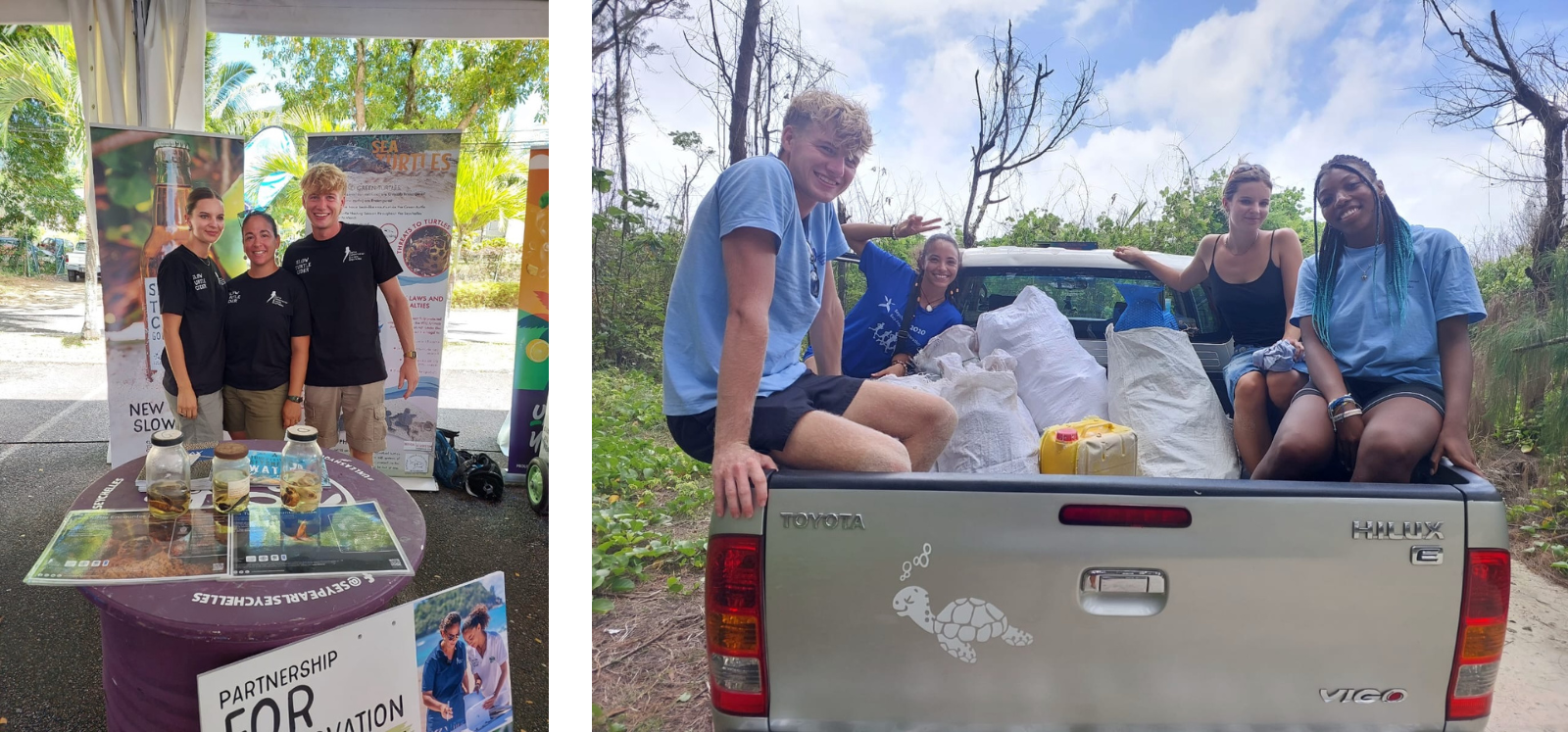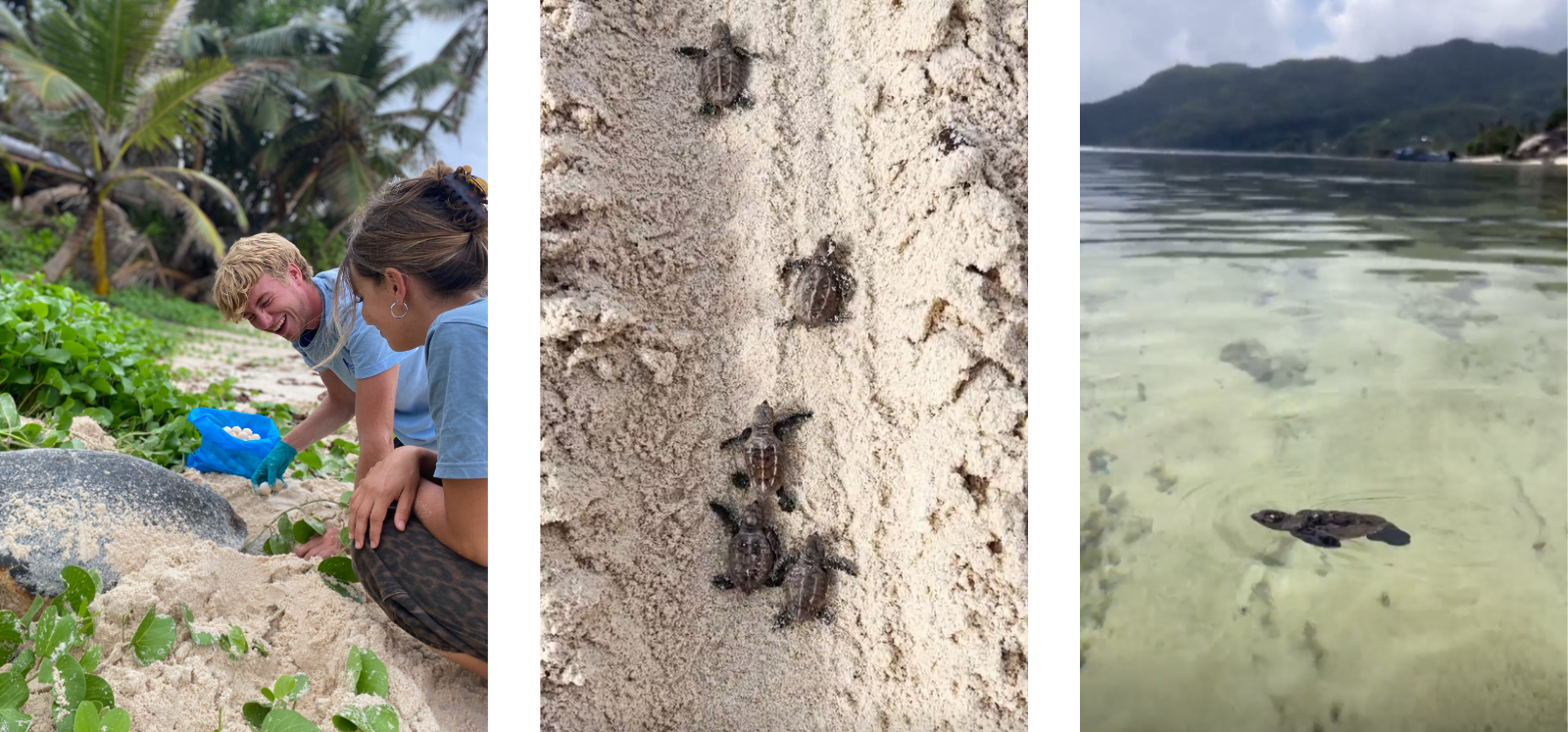Matthew Munn
My Experience with the Marine Conservation Society of Seychelles
May 2025
Marine Biology student, Matthew Munn, shares his experience of working with the Marine Conservation Society of Seychelles for 6 months as part of his year long placement.
The Marine Conservation Society of Seychelles (MCSS) is an NGO birthed from conservationists and local divers with enthusiasm to protect the breathtaking environment of the Seychelles archipelago. Founded in 1997, MCSS has made large contributions in conserving vulnerable elements of the marine ecosystem whilst also building a heavy catalogue of data to help drive conservation policy advocacy. The most recent involves the seasonal protection of five beaches in southern Mahé, which serve as vital nesting grounds for the endangered green turtle (Chelonia mydas) and the critically endangered hawksbill turtle (Eretmochelys imbricata).
MCSS runs four main projects around the inner island of Mahé: turtle monitoring program, whale shark program, coral restoration project and wetland conservation. These projects rely on external funding (generated by donations, grants and local sponsors) and internal support through volunteers. As a volunteer over my six month stay, I was lucky enough to take part in all four of these projects which provided valuable experience and key insight into variation in conservation measures.

One of the first projects that I took part in was the whale shark program. This program aimed to utilise ecotourism whilst furthering research into these incredible creatures. Guests were briefed on safety measures for both them and the shark, as well as information about the creatures (Traits, distribution, behaviour and current threats) before boarding the boat. Onboard, guests were encouraged to take part in spotting the sharks along with taking observations in the water to involve a citizen science element to the project. All observations and data taken on these expeditions provide key insights to this elusive and understudied species.
My main project was the turtle monitoring program. Three days a week we would take part in beach patrols on six primary nesting beaches on the south of Mahé. On patrol, evidence left by the nesting turtle is carefully assessed to determine both the nest’s location and the species. The nest position is then marked, along with an estimated hatching date. The nest is then carefully monitored until its estimated hatching date when closer attention is required to gain hatchling success data. I was also lucky enough to begin some personal research to address how sand albedo varies at different sites and how that plays a role in hatchling sex-ratio outputs, using temperature loggers.

Being able to observe this incredible nesting process in such a beautiful part of the world really drove my enthusiasm to provide my best conservation efforts for these threatened species. The most valuable thing I observed was MCSS’ integrative approach of community (local schools) and stakeholder involvement. This education-based approach will serve a huge role in the future viability of nesting turtle populations in the beaches of south Mahé and should be a fundamental part in any conservation organisation.
I would strongly encourage a placement year. I pushed myself far out of my comfort zone and I couldn’t be happier with the results.
